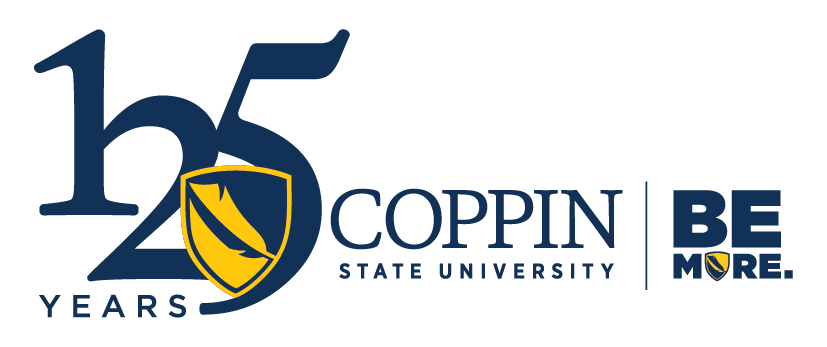Professional Development Opportunities in Digital Accessibility
Digital Accessibility
New Title II ADA Regulations — Self-Paced Micro-Credential Courses

In April 2024, the U.S. Department of Justice released new Title II regulations under the Americans with Disabilities Act (ADA), strengthening requirements for digital accessibility in education.
Colleges and universities are now expected to ensure that websites, course materials, and learning platforms are accessible to individuals with disabilities. Compliance deadlines are approaching in April 2026.
To support faculty and staff in meeting these requirements, the Innovation, Development, Education and Assessment(I.D.E.A) team will offer self-paced micro-credential courses starting September 2025.
Participants who complete any Digital Accessibility course or workshop will earn:
Digital Badge documenting ADA Title II–aligned professional development
Certificate with verified Professional Development (PD) hours
📚 Digital Accessibility Micro-Credentials (Self-Paced Online Courses)
Open enrollment: Jan 1, 2026-August 30, 2026
Faculty and staff can complete one, two, or all three self-paced courses.
Register for the Self-Paced Courses
These courses are designed to build on each other, so if you plan to complete all three, we recommend taking them in the following sequence:
Digital Accessibility Foundations
Digital Accessibility Planning
Digital Accessibility Application
Self Paced Micro-Credential Course Descriptions
1. Digital Accessibility Foundations
Badge Outcome: Build essential knowledge of accessibility in digital spaces.
Learn web and document accessibility principles, Universal Design for Learning (UDL) concepts, and how accessibility benefits all learners.
Skills & Knowledge Gained:
Identify how individuals with disabilities interact with digital environments
Understand core accessibility guidelines (WCAG, ADA)
Apply UDL concepts in digital teaching and content creation
Recognize accessible course material components
Locate and use accessibility resources
2. Digital Accessibility Planning
Badge Outcome: Develop actionable plans to improve accessibility in your courses or department.
Gain strategies to identify barriers, prioritize changes, and implement improvements.
Skills & Knowledge Gained:
Conduct accessibility audits of materials or workflows
Create a practical action plan
Facilitate accessibility-focused conversations
Prioritize resources and changes needed
Establish an accessibility-forward culture
3. Digital Accessibility Application
Badge Outcome: Apply advanced accessibility strategies to real course content.
Get hands-on experience remediating documents, creating accessible multimedia, and improving course structures in Blackboard Ultra.
Skills & Knowledge Gained:
Remediate Word, PowerPoint, and PDF files for accessibility
Create accessible course and communication materials
Apply captioning and transcription strategies
Use tools like WAVE and Anthology Ally for evaluation
Share accessibility improvements within your department
Training Opportunities At Coppin
Coppin State University is committed to ensuring our digital content and services are accessible to everyone. New ADA Title II digital accessibility regulations require public universities to document staff and faculty training and progress toward accessibility over time.
Get Support / Contact the Accessibility Team
Need help making your course content fully accessible? We’re here to support you.
Whether you're revising a syllabus, adding captions, or checking Ally scores in your LMS, our team offers one-on-one consultations to guide you through every step.
As the State of Mobile App Accessibility Report (ArcTouch, 2025) reminds us,
“A partially accessible experience is a broken experience.”
📧 Email us at tlt@coppin.edu
📞 Call (410) 951-2643
📍 Visit the Science & Technology Center, Suite 400
🕒 Monday–Friday, 8:30 AM – 5:30 PM
Let’s work together to create content that’s inclusive, effective, and accessible from the start.
Explore Kirwan Center Opportunities
Check out these Digital Accessibility professional development opportunities and mini-grants from the William E. Kirwan Center for Academic Innovation, available to all faculty and staff across the University System of Maryland (USM).

These system-wide programs include:
Workshops, fellowships, and training on creating “born accessible” digital learning experiences
Collaboration with colleagues from all USM institutions
USM Remediation Sprints Schedule
Using the Digital Accessibility 6 Essential Steps, created by our colleagues at University of Maryland, College Park, we will host monthly remediation sprints where we tackle one essential step of digital accessibility each month. These sprints, hosted on Zoom, will include a short overview of the essential steps and then active work time to remediate your own documents.
Our Digital Accessibility Work Group campus representatives will offer additional sessions throughout the month.
Below is the remediation sprint schedule for 2025-2026:
Monday, February 9, 2-3 pm: Multimedia Sprint, Register for the Sprint
Monday, March 9, 2-3 pm: Sprint to Finish, Register for the Sprint
You can take advantage of these Kirwan Center opportunities in addition to the professional development sessions we offer here at Coppin.
Self-Pace Spring Cleaning Guide
Access USM's self-paced Spring Cleaning guide with step-by-step resources for remediating your content on your own timeline.
Resources:
USM Accessibility In Action Monthly Newsletter
What’s New with Title II: Digital Accessibility Essentials for Academic Programs (YouTube video)
Chronicle of Higher Education article on Title II and What it Means for Higher Education
Interested in learning more about UDL?
👉 Take a look at an example of a UDL designed online course. The course is self-paced, free and if you chose to complete it, you can will receive a Professional Development Certificate from CAST.